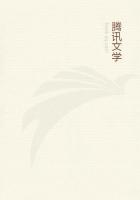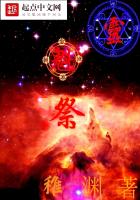His talk was broad and free. He laughed where he could; he joked if a joke was possible; he was true to his friends, and never lost his temper or became ill-natured. Like all New Yorkers he was decidedly not a Bostonian; but he was what one might call a transplanted New Englander, like General Sherman; a variety, grown in ranker soil. In the course of life, and in widely different countries, Adams incurred heavy debts of gratitude to persons on whom he had no claim and to whom he could seldom make return; perhaps half-a-dozen such debts remained unpaid at last, although six is a large number as lives go; but kindness seldom came more happily than when Mr. Evarts took him to Washington in October, 1868.
Adams accepted the hospitality of the sleeper, with deep gratitude, the more because his first struggle with a sleeping-car made him doubt the value -- to him -- of a Pullman civilization; but he was even more grateful for the shelter of Mr. Evarts's house in H Street at the corner of Fourteenth, where he abode in safety and content till he found rooms in the roomless village. To him the village seemed unchanged. Had he not known that a great war and eight years of astonishing movement had passed over it, he would have noticed nothing that betrayed growth. As of old, houses were few; rooms fewer; even the men were the same. No one seemed to miss the usual comforts of civilization, and Adams was glad to get rid of them, for his best chance lay in the eighteenth century.
The first step, of course, was the ****** of acquaintance, and the first acquaintance was naturally the President, to whom an aspirant to the press officially paid respect. Evarts immediately took him to the White House and presented him to President Andrew Johnson. The interview was brief and consisted in the stock remark common to monarchs and valets, that the young man looked even younger than he was. The younger man felt even younger than he looked. He never saw the President again, and never felt a wish to see him, for Andrew Johnson was not the sort of man whom a young reformer of thirty, with two or three foreign educations, was likely to see with enthusiasm; yet, musing over the interview as a matter of education, long years afterwards, he could not help recalling the President's figure with a distinctness that surprised him. The old-fashioned Southern Senator and statesman sat in his chair at his desk with a look of self-esteem that had its value. None doubted. All were great men; some, no doubt, were greater than others; but all were statesmen and all were supported, lifted, inspired by the moral certainty of rightness. To them the universe was serious, even solemn, but it was their universe, a Southern conception of right.
Lamar used to say that he never entertained a doubt of the soundness of the Southern system until he found that slavery could not stand a war.
Slavery was only a part of the Southern system, and the life of it all -- the vigor -- the poetry -- was its moral certainty of self. The Southerner could not doubt; and this self-assurance not only gave Andrew Johnson the look of a true President, but actually made him one. When Adams came to look back on it afterwards, he was surprised to realize how strong the Executive was in 1868 -- perhaps the strongest he was ever to see. Certainly he never again found himself so well satisfied, or so much at home.
Seward was still Secretary of State. Hardly yet an old man, though showing marks of time and violence, Mr. Seward seemed little changed in these eight years. He was the same -- with a difference. Perhaps he -- unlike Henry Adams -- had at last got an education, and all he wanted. Perhaps he had resigned himself to doing without it. Whatever the reason, although his manner was as roughly kind as ever, and his talk as free, he appeared to have closed his account with the public; he no longer seemed to care; he asked nothing, gave nothing, and invited no support; he talked little of himself or of others, and waited only for his discharge. Adams was well pleased to be near him in these last days of his power and fame, and went much to his house in the evenings when he was sure to be at his whist.
At last, as the end drew near, wanting to feel that the great man -- the only chief he ever served even as a volunteer -- recognized some personal relation, he asked Mr. Seward to dine with him one evening in his rooms, and play his game of whist there, as he did every night in his own house.
Mr. Seward came and had his whist, and Adams remembered his rough parting speech: "A very sensible entertainment!" It was the only favor he ever asked of Mr. Seward, and the only one he ever accepted.
Thus, as a teacher of wisdom, after twenty years of example, Governor Seward passed out of one's life, and Adams lost what should have been his firmest ally; but in truth the State Department had ceased to be the centre of his interest, and the Treasury had taken its place. The Secretary of the Treasury was a man new to politics -- Hugh McCulloch -- not a person of much importance in the eyes of practical politicians such as young members of the press meant themselves to become, but they all liked Mr. McCulloch, though they thought him a stop-gap rather than a force. Had they known what sort of forces the Treasury was to offer them for support in the generation to come, they might have reflected a long while on their estimate of McCulloch.
Adams was fated to watch the flittings of many more Secretaries than he ever cared to know, and he rather came back in the end to the idea that McCulloch was the best of them, although he seemed to represent everything that one liked least. He was no politician, he had no party, and no power.















